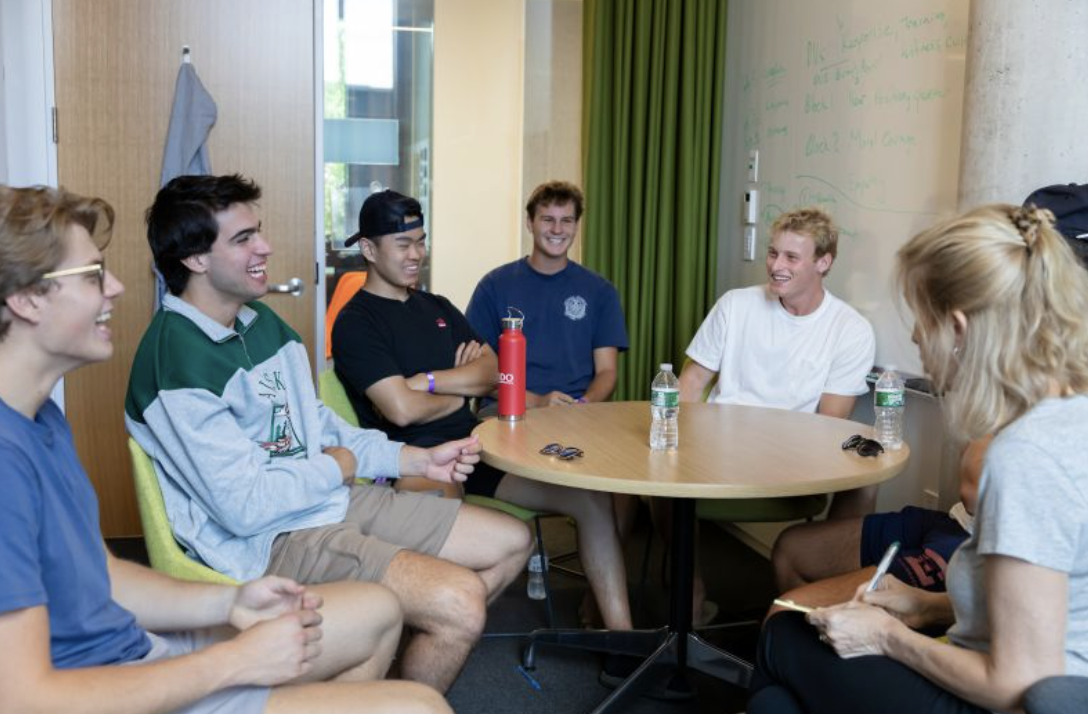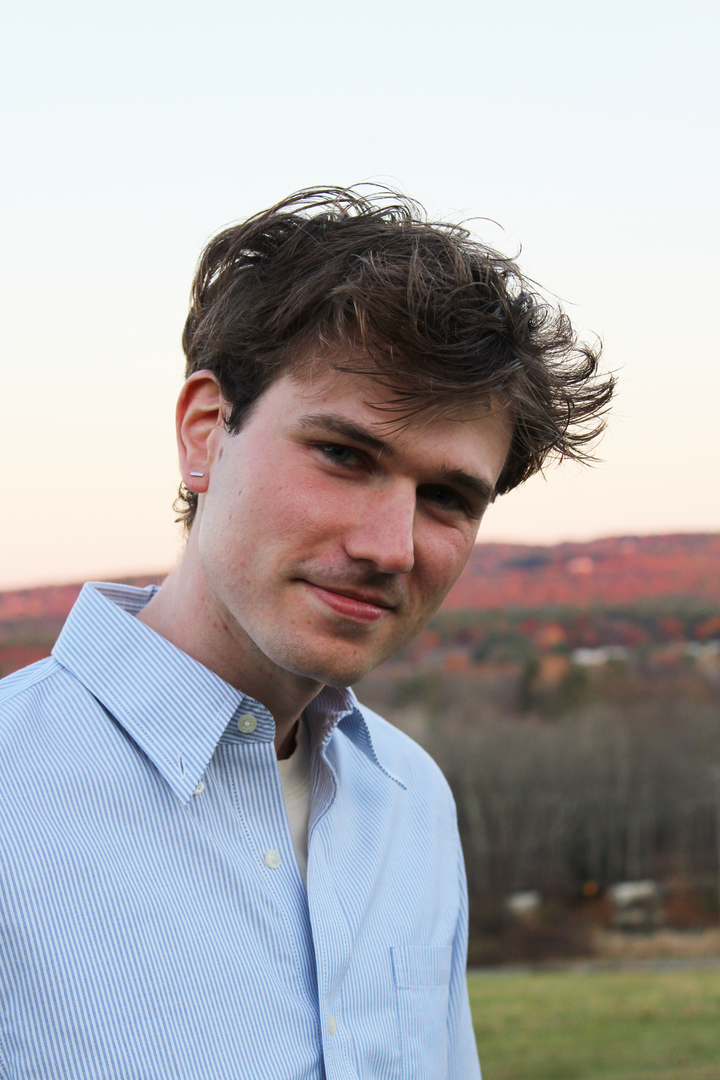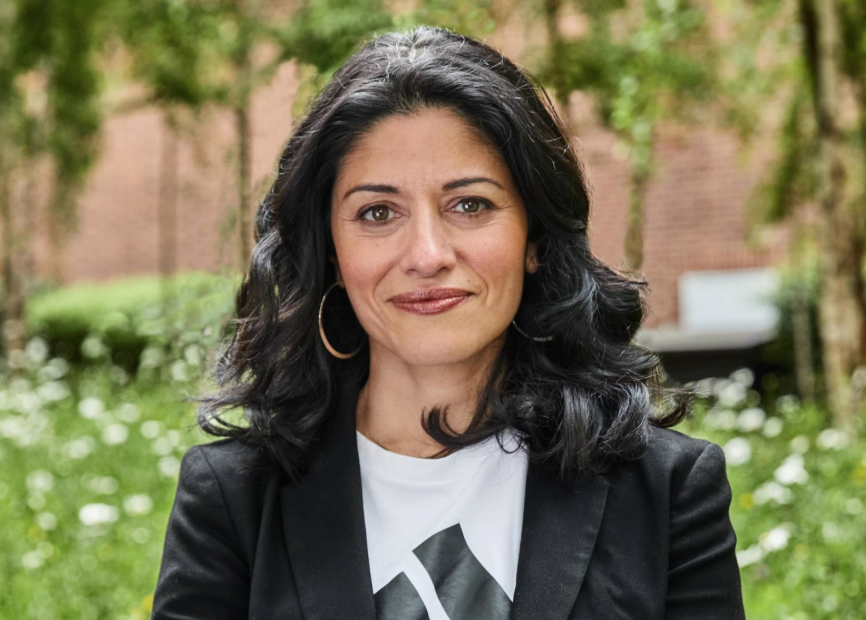Professors Plan Syllabi, Class Discussions Around Election
In light of Tuesday’s election, some professors have altered their syllabi. Staff Writer Talia Ehrenberg ’28 and Assistant Features Editor Nife Joshua ’26 spoke with two Amherst professors about how they plan to approach the election in their classes.

As Amherst educators prepare for the upcoming election on Tuesday, Nov. 5, many recognize the importance of addressing Election Day, and the complexities and uncertainties that come with it, in their curriculum. Some have embedded flexibility in their syllabi to adapt to the election’s results. Educational environments like Amherst classrooms serve as a vital space for engaging students in discussions about civic responsibility.
Continuing the recent trend of landmark elections, the questions of this race will likely not be answered on Election Night. This liminality, combined with the “most important election of our lifetime” mentality, will likely leave the American public in a state of profound unsettledness. Just like during the 2020 election, when there was a four-day gap between Election Day and the results announcement, this election’s likely period of uncertainty will have a range of impacts on members of the campus community. To proactively address this anticipated anxiety, Poler Family Professor of Psychology Catherine Sanderson and Assistant Professor of American Studies Angus McLeod have built in time for students to wrestle with, understand, and process this historic political moment.
For his “Culture Wars in U.S. Education” course, McLeod explained that his class on Wednesday is shaped around his students’ desire to understand the election's implications for education policy. He noted, “I wanted to have flexibility in what we did ... [since] the presidential election is directly relevant to our subject matter.” The recent wave of right-wing censorship of educators and educational material poses a distinct threat to democratic freedom in schools and libraries. The outcomes of the election at the national level (in both the executive and legislative branches) as well as at the state level could greatly affect this movement.
Similarly, Sanderson emphasized flexibility in planning for her “Introduction to Psychology” course, stating, “I was very mindful of [having an] 8:30 [a.m. class] on November 6 … [in which] we are discussing stereotypes, aggression, love, and altruism.” These themes were intentionally picked for this day — adaptable to the specifics of what will be known early the morning after the election, yet offering a consistently applicable framework for students to process the available results with.
Both professors shaped their decisions based on their past election experiences and emphasized the importance of student comfort. McLeod explicitly rejected the idea of canceling class, a sentiment which he noted that Provost and Dean of the Faculty Martha Umphrey also echoed. During the 2016 election, McLeod was teaching high school, where he witnessed the importance of holding class directly after the election. “Then, it was important to show up for my students and provide an educational space for us to process,” he said. “My priority was being present, providing space for seemingly incompatible sentiments to coexist, and helping students think about what the outcome might mean for what we were studying in my class.”
Sanderson emphasized that it may be important not to take a direct stance directly following an election. Sanderson recalled a colleague who, in 2016, eagerly opened a bottle of “Trump champagne” to celebrate former President Donald Trump’s victory during a seminar. Sanderson said, “I don’t want to be that professor who makes my classroom uncomfortable for students.”
After teaching the same class since 1998, and building on her experiences after the 2016 and 2020 elections, Sanderson has adapted her teaching style to better support her students. “There are lots of times I’ve thought about what I’m teaching, but in 2020, I was particularly focused on how I was teaching, especially in terms of Covid and creating community within the classroom.”
This focus informed her social psychology course, which she is teaching this semester, where students analyze stereotypes, including the portrayal of Vice President Kamala Harris compared to previous vice presidents.
Flexibility in course planning is crucial given the unpredictability of recent elections. In Sanderson’s words, “I can’t afford to lose a week of class waiting for the election results. I need to keep teaching and moving forward.”
McLeod’s syllabus allowed students to shape the content of Wednesday’s class, explaining: “I asked my students what they would like to talk about and they brought up a discussion of both candidates’ plans for education. Even after one side has won, the other side will continue to push a different set of policy priorities and narratives, so I think the students are right to focus on both regardless of the outcome.”
The role of professors in educating their students during politically charged times is complex. McLeod emphasized the need for balance, stating, “Educate, yes. Indoctrinate, no.” He believes that political discussions should be part of the classroom but warned against creating an echo chamber where only like-minded opinions are shared. He encouraged a broader perspective on political viewpoints, noting, “[Amherst students] are not a representative sample, particularly when it comes to political beliefs. How do we engage with issues that are widely held across the country but not on our campus?”
Sanderson echoed this sentiment by challenging her students to think critically about their role in creating change. She poses questions like, “What do you do? Do you make a plan? How can you effect change?”
While students struggle with feeling empowered, many educators across the country experience significant pushback when trying to address political topics. They grapple with restrictive policies, fears of creating controversy, and the difficulty of discussing sensitive political issues without bias. Despite these challenges, educators like McLeod and Sanderson are committed to fostering a deeper understanding of this election’s implications and the ways it intersects with students’ identities as learners and people.
Both Sanderson and McLeod reflected on their responsibilities during this election cycle. Sanderson was mindful of the impact of her words, stating, “I’m going to be standing at the front of the room thinking about what I say, knowing that they may remember that more than the discussion of stereotypes.” McLeod added that the professor’s role during this election is to provoke thought: “The goal is understanding, not agreement. It’s essential to encourage students to consider positions that challenge their beliefs and worldview.”





Comments ()